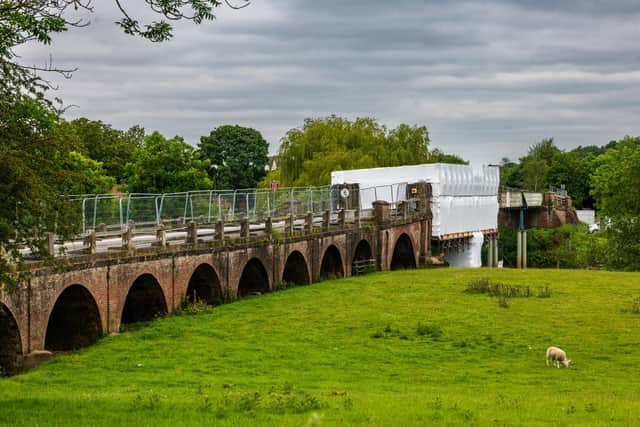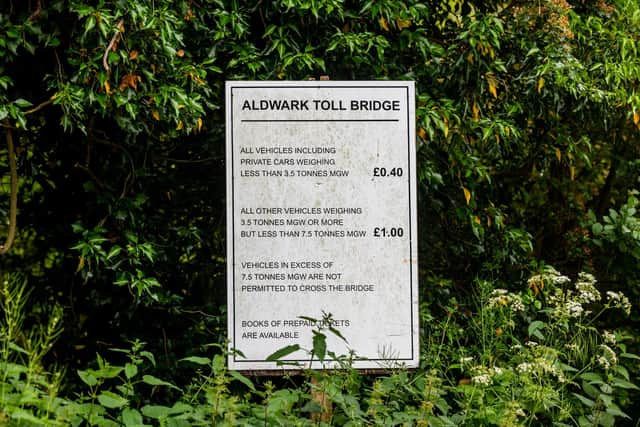Aldwark Toll Bridge: The fascinating history of Yorkshire's only private toll bridge as it closes for six months of repairs
The 18th-century structure – which was rebuilt after flood damage in 1880 – is currently in the middle of a six-month closure for essential maintenance, leaving drivers facing a diversion of 25 miles that it was originally built to avoid.
The toll, set at 40p for a vehicle not towing a trailer, has not changed for almost 20 years despite both inflation and the owners’ attempt to double it in 2020, which was refused by a government planning inspector.
Advertisement
Hide AdAdvertisement
Hide AdIts ownership over the centuries has been shrouded in mystery. A local landowner received parliamentary permission to build it in 1772, in order to replace a ferry service and speed up journeys. It was owned in the 20th century by a company called Yorkshire Farmers Ltd, and was then sold in the 1960s to the Montagu Burton clothing manufacturer, based in Leeds.


In 2020, it was purchased by Derbyshire businessman Alex Bell, who commissioned a structural survey of the bridge. The current project, set to be completed in October, will see the archways repaired, the deck replaced and the structure repainted.
Future plans for the bridge include improving the traffic flow and reducing congestion at the approaches through the introduction of automation and a traffic light system, which would prevent two cars crossing in opposite directions at the same time. Smart card payments are also being considered.
The largest expense for the bridge’s owner is wages, which have doubled since 2005 – the current operations manager, Dudley Valentine, collects the tolls from the traditional tollkeeper’s cottage and booth.
Advertisement
Hide AdAdvertisement
Hide AdIn the 1960s, the bridge and others like it were even debated in Parliament, with MPs expressing frustration on behalf of their constituents that fees were levied by ‘anonymous’ landowners who did not pay tax on the tolls as the laws around the system dated from the Georgian era.


At the time, Aldwark’s female tollkeeper was mentioned, as she earned just £1 for a seven-day, 7am-10pm working week once the rent for her tied cottage had been deducted.
Also criticised was Selby Toll Bridge, which nowadays carries the A19. In the 1960s, it had a reputation for generating large tax-free profits for its owners while causing gridlock in the town. In 1991, local businesses contributed to a council buy-out of the bridge and the fees were abolished.
Aldwark is not the only historic bridge in Yorkshire set to close for repairs this summer, as the great age of these relics of the coaching age begins to tell. 18th-century Harewood Bridge, which carries the A61 between Leeds and Harrogate over the River Wharfe, will shut for a month, while access to Hampsthwaite Bridge, which was built in the village near Harrogate in the 1600s and spans the Nidd, was blocked off this week when a crack was spotted in the brickwork.
